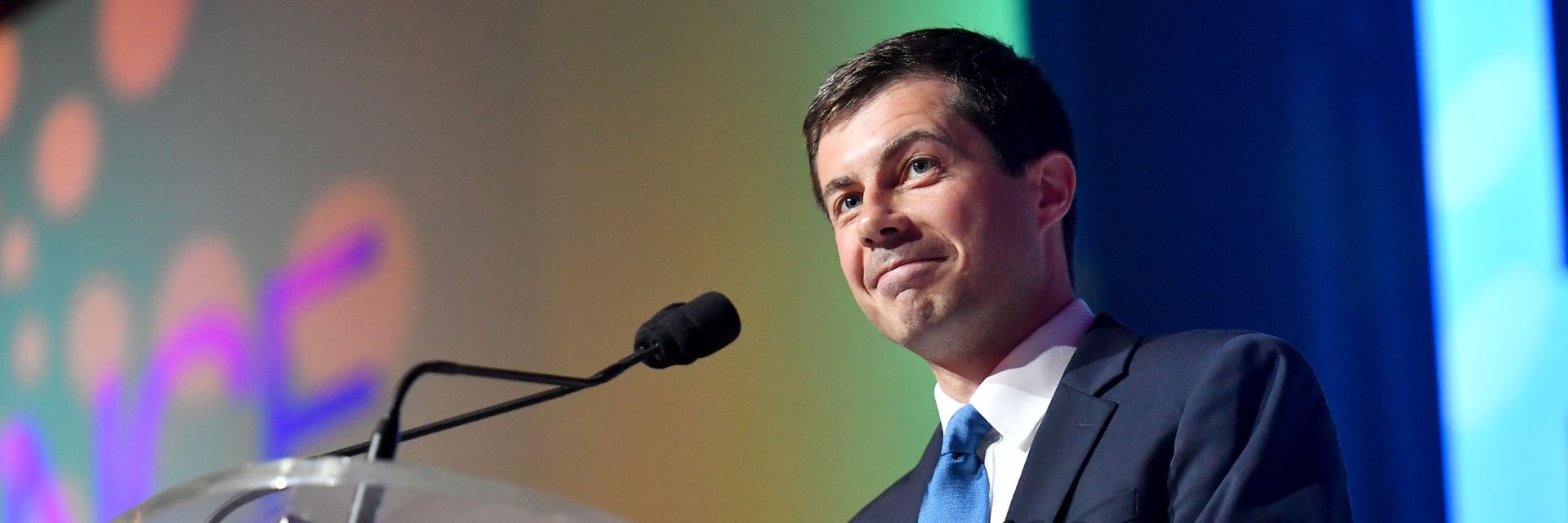Black women have been “at the tip of the spear experiencing” the consequences of systemic racism in America, according to Mayor Pete Buttigieg, one of several Democratic candidates to address the crowds on the Power Stage during the 25th anniversary of Essence Festival.
“I stand here aware that Black women are not just the backbone of the Democratic party, but the bone and sinew that is making our democracy whole,” Buttigieg said. “We have seen time and time again, especially in the last couple elections, that when Black women mobilize, outcomes change, and we need some new outcomes in a time like this.”
Rising incarceration rates amongst Black women, gerrymandering and disenfranchisement, the wage gap, White Nationalism and the American healthcare system all work to maintain institutional racism, Buttigieg said in his opening remarks.
“There’s been too much talk about Black problems, and not nearly enough about Black solutions,” Buttigieg said. “Empowerment leads to greater empowerment.”
The South Bend, Indiana, mayor also applauded California state Sen. Holly Mitchell’s efforts to bring to lawmakers there the CROWN Act, which prohibits discrimination against black people for their natural hairstyles. California Gov. Gavin Newsom signed the law just days ago.
“You’re not free if you can be kicked out of school or lose your job if somebody says your hair is a distraction,” Buttigieg said. “Hair discrimination is racial discrimination, and we ought to recognize that at the national level, too.”
Buttigieg also sought to reclaim certain trappings of American politics he described as being owned by Republican rhetoric.
“God doesn’t belong to a political party,” Buttigeg said to cheers from the Essence audience, many of whom remained for the candidate’s talk after the festival’s annual Sunday worship services.
The conversation included a Q&A with Essence Communications President Michelle Ebanks, Essence Ventures owner Richelieu Dennis and Rev. Al Sharpton, who asked Buttigieg for his reaction to fellow Democratic candidate and former vice-president Joe Biden’s apology for working with segregationist senators in the past.
Buttigieg called the apology “a step forward.”
“I hope now our conversation can be a forward-looking one about racial equality in our time,” Buttigeg said. “Every candidate, especially white candidates, need to find their voices on this issue.”
Sharpton pressed Buttigeg for the “lessons” in the aftermath of the death of Eric Logan, a Black man shot and killed by a South Bend, Indiana, police officer.
“The biggest thing we’re finding is how important it is to empower community members to have a voice in how policing happens in our city,” Buttigieg said, “and I think that’s going to be important for law enforcement to be able to do their job as well as for communities of color to feel safe and to feel that they are enjoying equal protection.”
Buttigieg said he’d be willing to sign H.R. 40, the bill to study and propose Reparations for African-Americans, if it passes, saying the only way to remove intentionally racist policies is by intentionally writing legislation and policies to remove and replace them.
“All of this isn’t a legacy of 400 years ago,” he said. “This is the consequence of things going on right now, as we speak.”
